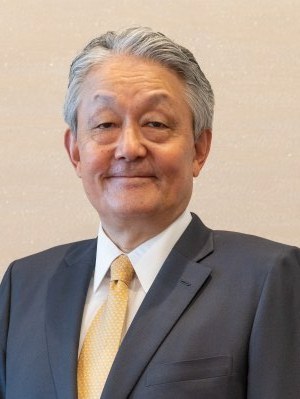News Release
Jan. 04, 2024 JPX New Year's Message from Group CEO Yamaji

I would like to express my deep sorrow for those who lost their lives in the Noto Peninsula Earthquake that occurred so early in the New Year, as well as those who were tragically killed in the accident on the way to transport relief supplies to the affected areas. I send my deepest condolences and heartfelt sympathies to all those who have lost loved ones or been affected by these two disasters.
I hope with all my heart that those who have been affected can regain some peace of mind and that the damaged areas will be restored as soon as possible.
This year promises to be a symbolic one, with the launch of the new NISA scheme. With awareness of and interest in retail investment steadily growing, I see this year being one where our long-held wish for "the shift from savings to investment" finally gains some real momentum.
At JPX, in order to provide a strong backing for this trend and the virtuous cycle of growth and distribution, we are working on enabling a smoother investment process for individual investors as well as enhancing the quality and quantity of our product lineup.
We have requested companies with large investment units to conduct share splits and are seeing movement on this already. In July last year we started calculation of the JPX Prime 150 Index, which enables visualization of Japan's most prominent value-creating companies. As well as the listing of futures that has been announced, we are also planning to list ETFs linked to this index. In September, we also listed Actively Managed ETFs, which cater to a diverse range of fund management and asset building needs.
In order to achieve the "virtuous cycle of growth and asset-based income" which is the aim of the new NISA, it is crucial that the listed companies on the receiving end of this investment grow sustainably and create value. Given the request TSE sent to listed companies in March last year on taking "action to implement management that is conscious of cost of capital and stock price," alongside other things, investors from Japan and abroad are now holding high expectations of a shift in approach at listed companies.
The Japanese stock market took a positive turn last year, aided by a variety of factors both internal and external. On the other hand, I still hear doubts from investors who have been dealing in Japanese stocks for many years – they wonder whether this time the change is real, or whether there will be another return to the status quo. At JPX, we will put every effort into fulfilling our role as a market operator with the determination to make sure that this time, the change is real.
Finally, I would like to say a few words about the market this year.
Looking at the surrounding environment, we will need to continue to pay close attention to various risk factors including geopolitical risks such as U.S.-China relations, Ukraine, and the Middle East, as well as domestic monetary policy and global economic trends. November's U.S. Presidential election is also one to watch.
However, the biggest difference this year is the signs we are seeing of an escape from three decades of deflation, due to the continued rise in commodity prices and momentum in wage growth. With company results also predicted to break records this fiscal year, it looks as if Japan's economy is on the road back to a proper growth trajectory. Furthermore, investors both domestic and overseas are reacting positively to the government's future-focused policies including corporate governance reform, enhancing the asset management industry, the new NISA, and the Startup Development Five-Year Plan.
Given these factors, my impression is that most people are expecting an overall continuation of last year's robust performance.
2024 is the Year of the Dragon, which is considered a strong year in Japanese financial proverbial tradition. I hope that stock prices can surge upward with the momentum of a flying dragon, just like the tradition holds.
Lastly, I sincerely wish that 2024 can be an even better year for the Japanese financial and capital markets and for everyone.
Director & Representative Executive Officer, Group CEO
Japan Exchange Group, Inc.
Contact
Japan Exchange Group, Inc. Corporate Communications
TEL:+81-3-3666-1361



